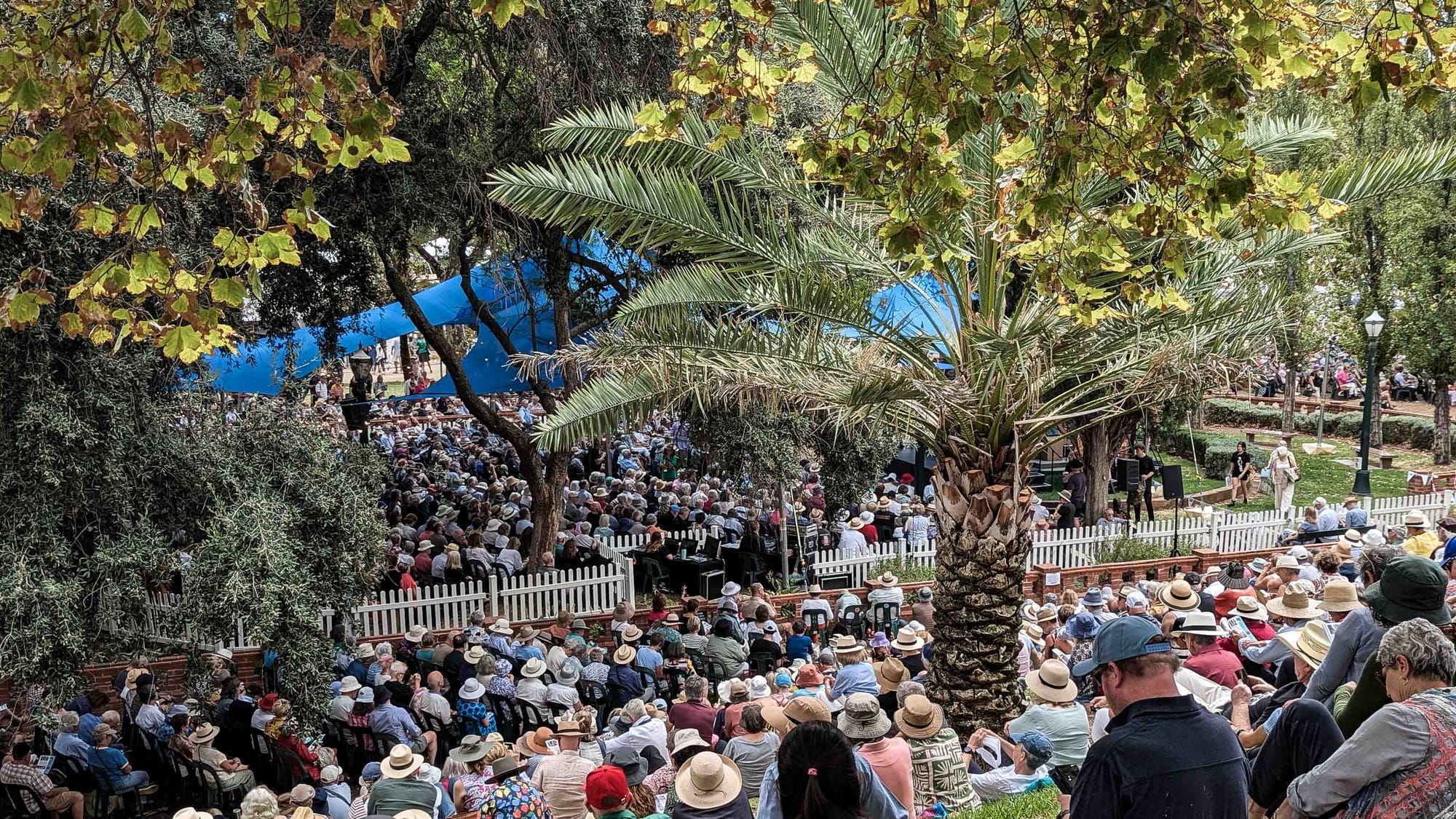The glaring absence at Adelaide Writer's Week
Adelaide Writer's Week showcased a gaping blind spot among Australia's thought leaders.

I spent few days recently at Adelaide Writer’s Week. The lineup was impressive and the Adelaide setting a delight. There was a glaring absence in the programme..
Last week as the full impact of Trump’s betrayal of Ukraine, European allies and Canada was being processed by the world, I jumped on a plane to Adelaide to join the crowds at Adelaide Writer’s Week. My Adelaide-based brother’s been singing the praises of this event for years. A writer’s festival seemed like a good place to ponder the madness unfolding around us and to think about how it might impact Australia.
The blindspot at Adelaide Writer's Week
Since before Federation, Australians have been pretty realistic about the limitations of our defence capabilities. Big and powerful friends have always been at the centre of our security.
After the British humiliation in Singapore in February 1942, just months after Japan’s attack on Pearl Harbour, we changed horses. The United States became our great protector and has been ever since.
Until now.
Donald Trump hasn’t said much about Australia yet. But the fact that he has embraced Putin and other tyrants and attacked traditional allies in Canada and Europe, should make Australians a tad uneasy.
Huge minds from Australia and around the world gathered in Adelaide to help us make sense of this moment.
We heard lots and lots about the US and Trump. A fair bit about Britain. A reasonable amount about Gaza.



But the great minds gathered seemed lost for analysis of how Australia might function in a Trumpified world? Reflection on how the new order might play out in our neighbourhood - Asia and the Pacific - was non-existent.
Is nobody writing about our neighbourhood? Does nobody in Australia know about our neighbourhood?
The expertise of the experts of Adelaide did not include the region where we send 80% of our exports, where 50% of the world lives, where millions of Australians trace their ancestry and where we face our greatest opportunities and risks in the years ahead. In all the talks about Trumptastrophic geopolitical challenges, none of the highly credentialed experts could offer insights into Indonesia, China, India, Papua New Guinea or anywhere else in our neighbourhood.
This vast region, that also happens to be rich in literary, artistic, musical and cultural tradition, was also unrepresented in non-geopolitical sessions at the event.
I only spotted a couple of Asian names and faces in the line-up.
Adelaide Writer’s Week was showcasing Australia's gaping blind spot.
Anglospherians and Europhiles have always dominated big thinking in Australia. Paul Keating briefly rocked the boat in the 90s. But John Howard quickly set us back to our colonial-era orthodoxy and we’ve sat here ever since.
Even our Sinophile linguist, PM Kevin Rudd, barely tried to shift the needle back to Asia as a place with more to offer than trade and cheap holidays. I’m sure Foreign Minister Penny Wong understands the problem - but it’s a tough fight in the age of AUKUS.
We still prize a sensibility that impresses Washington, London, Paris and New York. It's still ok for Australian thinkers, leaders, journalists and writers to know little or nothing about our region. And it’s getting worse.
Trade ties are booming. Cultural ties not so much.
Depth in Asian history, culture, politics and language outside Australia’s Asian communities is lower in 2025 than it was in 1995. And Australia has been comfortable with that. Asian studies, language courses, as well as Asian history departments, are all in decline.
Nobody on the wise panels of Adelaide could place Australia in its region in the age of Trump. It seemed like nobody had even spent any time thinking about it. We're about to find out whether that matters.
The author has lived much of the past three decades in Vietnam and has travelled extensively through Asia and South East Asia